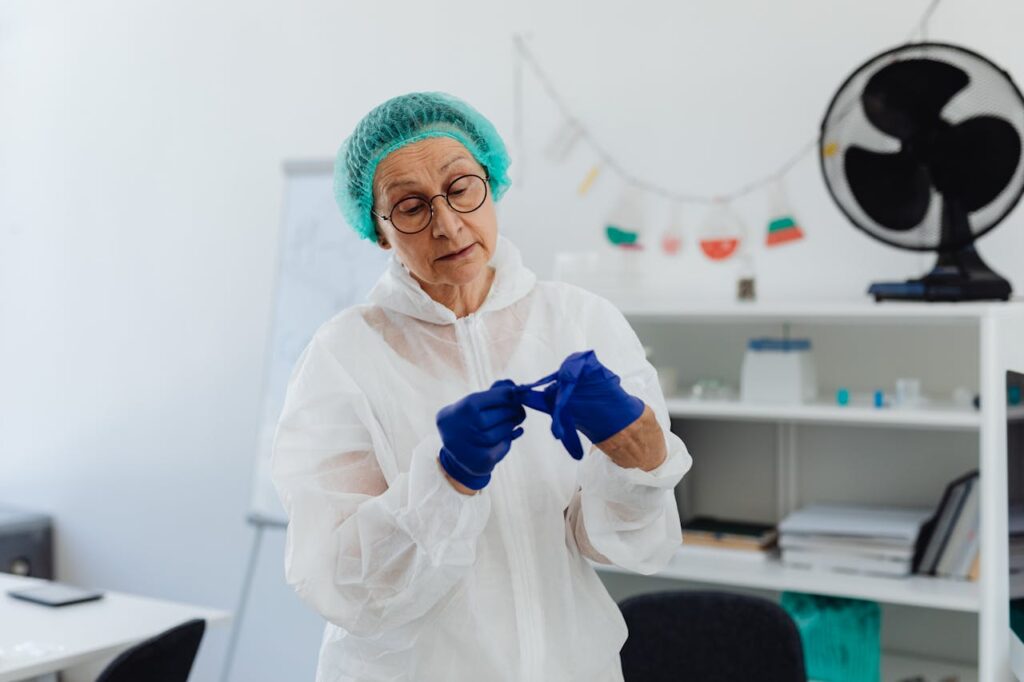What is UCLA Medical Center known for?
UCLA Medical Center in Los Angeles is renowned for its world-class healthcare, cutting-edge research, and high-ranking medical specialties. It consistently ranks among the top hospitals in the U.S., particularly excelling in areas such as oncology, cardiology, neurology, and organ transplantation. As part of the UCLA Health system, the medical center also plays a critical role in pioneering new treatments and medical technologies. It is affiliated with the prestigious David Geffen School of Medicine, contributing to advanced medical education and training. UCLA Medical Center is also recognized for its compassionate patient care and comprehensive services in both adult and pediatric medicine.

Overview of UCLA Medical Center
The University of California, Los Angeles (UCLA) Medical Center, part of UCLA Health, is recognized as one of the leading medical institutions in the United States and globally. Its history, innovative approach to healthcare, and dedication to patient well-being have made it a hub for advanced medical care and cutting-edge research. A special emphasis on senior care distinguishes the UCLA Medical Center, as it addresses the growing need for specialized medical attention for aging populations. This article explores the institution’s multifaceted approach to senior care, its initiatives, programs, and how it is helping shape the future of healthcare for seniors.
Founded in 1955, the UCLA Medical Center has consistently been ranked among the best hospitals in the country. With campuses located in Westwood and Santa Monica, UCLA Health encompasses four hospitals: Ronald Reagan UCLA Medical Center, UCLA Mattel Children’s Hospital, UCLA Santa Monica Medical Center, and the Resnick Neuropsychiatric Hospital at UCLA. In addition to its hospital network, UCLA Health operates over 180 medical practices throughout Southern California. The institution is known for providing top-tier care in a range of specialties, including geriatrics.
UCLA’s Commitment to Senior Care
As the global population ages, the demand for comprehensive senior care services grows. The U.S. Census Bureau reports that by 2034, older adults will outnumber children in the country for the first time. This demographic shift requires healthcare institutions to adapt their services to meet the complex needs of the senior population. UCLA Medical Center has risen to the challenge by creating a robust infrastructure focused on geriatric care, which is guided by compassion, innovation, and patient-centered approaches.
The Division of Geriatrics
The cornerstone of UCLA’s senior care efforts is its Division of Geriatrics, a department dedicated to promoting healthy aging and improving the quality of life for older adults. The division offers a comprehensive range of services, from primary care to specialized programs, addressing both the physical and mental health needs of seniors.
The Division of Geriatrics is also heavily involved in research and education, making significant contributions to geriatric medicine. It trains the next generation of healthcare providers through its fellowship programs and collaborates with institutions worldwide to advance the understanding of aging and its associated challenges. Through innovative research and clinical trials, UCLA aims to find better treatments for age-related conditions such as dementia, Alzheimer’s disease, osteoporosis, and heart disease.
Comprehensive Geriatric Assessment (CGA)
One of the standout offerings of UCLA’s senior care program is the Comprehensive Geriatric Assessment (CGA), a multidisciplinary evaluation that involves specialists in various fields, such as geriatricians, nurses, social workers, and physical therapists. The CGA is designed to provide a holistic view of an older patient’s health, addressing medical, psychological, social, and functional aspects. By thoroughly assessing seniors, UCLA’s medical professionals can develop personalized care plans tailored to the unique needs of each patient. This approach is particularly beneficial in preventing hospitalizations, improving overall well-being, and fostering independence among elderly patients.
Specialized Senior Programs
UCLA offers a range of specialized programs aimed at addressing the diverse needs of seniors, including:
1. Senior Health Program:
This program offers seniors access to primary care physicians who are specifically trained in geriatric medicine. These physicians coordinate care across various specialties, ensuring that older patients receive integrated treatment. The Senior Health Program focuses on preventive care, chronic disease management, and promoting independence among elderly patients. Routine screenings, immunizations, and monitoring of chronic conditions such as diabetes and hypertension are prioritized.
2. UCLA Alzheimer’s and Dementia Care Program:
Alzheimer’s disease and other forms of dementia are significant concerns for the aging population. In response, UCLA established the UCLA Alzheimer’s and Dementia Care Program, which provides comprehensive, coordinated care for patients with dementia and their families. The program employs a team-based approach, involving geriatricians, neurologists, and social workers to create care plans that address both the medical and emotional needs of patients.
One of the hallmarks of the program is the focus on supporting caregivers, who often bear the burden of managing the day-to-day care of individuals with dementia. UCLA provides education, resources, and support groups to help caregivers cope with the challenges they face.
3. Falls Prevention Program:
Falls are a leading cause of injury and death among seniors, and UCLA’s Falls Prevention Program is designed to reduce the risk of falls and improve mobility in older adults. The program uses a combination of physical therapy, balance training, and home safety assessments to help seniors stay active and independent. In addition, patients are educated about medications and lifestyle modifications that can reduce the likelihood of falling.
4. Palliative Care Services:
UCLA Health also provides palliative care services, which are designed to relieve the symptoms and stress of serious illness. These services are particularly valuable for seniors with chronic or terminal conditions, offering a compassionate approach that improves the quality of life for both patients and their families. Palliative care at UCLA focuses on pain management, emotional support, and coordinating care across different healthcare settings.
Innovative Research and Clinical Trials
Research plays a critical role in advancing senior care, and UCLA is at the forefront of geriatric research. The UCLA Division of Geriatrics actively conducts clinical trials aimed at improving treatments and finding cures for diseases that disproportionately affect older adults. These studies focus on a wide range of topics, including cognitive decline, cardiovascular disease, cancer, and osteoporosis.
One notable area of research at UCLA is dementia care. The institution is home to the UCLA Alzheimer’s Disease Research Center, which conducts groundbreaking studies on Alzheimer’s and related neurodegenerative disorders. By participating in clinical trials, UCLA is able to offer its patients access to cutting-edge therapies and treatments that are not yet widely available.
Another key area of research is in healthy aging. UCLA researchers are investigating the genetic, biological, and environmental factors that contribute to aging. These studies aim to uncover the underlying causes of age-related conditions and identify interventions that can delay or prevent their onset. UCLA’s efforts in geriatric research are supported by grants from federal agencies, including the National Institutes of Health (NIH), as well as private foundations.
Education and Training for Future Geriatricians
The UCLA Medical Center recognizes the importance of training healthcare professionals who are well-equipped to meet the needs of an aging population. To this end, it offers comprehensive training programs for medical students, residents, and fellows who are interested in specializing in geriatric medicine.
The UCLA Geriatric Medicine Fellowship is one of the most prestigious programs in the country, attracting top talent from across the globe. Fellows receive extensive clinical training, gaining hands-on experience in a variety of settings, including outpatient clinics, hospitals, and nursing homes. They also have the opportunity to engage in research and contribute to the advancement of geriatric medicine.
In addition to its fellowship program, UCLA offers a Geriatric Medicine Residency Track, which provides residents with the skills and knowledge needed to care for older adults. The residency program emphasizes interdisciplinary collaboration, teaching residents how to work with a team of healthcare professionals to deliver comprehensive care.
Community Outreach and Support
UCLA’s commitment to senior care extends beyond the hospital setting. Through its community outreach programs, the institution seeks to educate seniors and their families about healthy aging and provide resources to help them navigate the healthcare system.
One such initiative is the UCLA Health 50+ Program, which offers free educational seminars, health screenings, and wellness classes to older adults in the community. Topics covered include nutrition, exercise, fall prevention, and managing chronic diseases. The program also provides access to support groups for seniors dealing with specific health challenges, such as cancer or heart disease.
UCLA also partners with local organizations to provide care for underserved seniors. For example, the UCLA Mobile Eye Clinic provides free eye exams and glasses to low-income seniors, helping to prevent vision loss and improve quality of life. Additionally, UCLA’s collaboration with Meals on Wheels ensures that homebound seniors receive nutritious meals and regular wellness checks.
Telemedicine and Technological Innovations in Senior Care
Recognizing the growing role of technology in healthcare, UCLA has embraced telemedicine as a way to provide care for seniors, particularly during the COVID-19 pandemic. Telemedicine allows older adults to access medical consultations from the comfort of their homes, reducing the need for in-person visits and minimizing the risk of exposure to illness.
UCLA’s telemedicine services have been particularly beneficial for seniors with mobility issues or chronic conditions that require frequent monitoring. Through virtual visits, seniors can consult with their healthcare providers, receive prescriptions, and manage their health without leaving home. Telemedicine also allows caregivers to participate in appointments and stay informed about their loved one’s health.
In addition to telemedicine, UCLA is exploring the use of wearable technology and remote monitoring devices to track seniors’ health in real-time. These technologies can alert healthcare providers to potential issues before they become serious, allowing for early intervention and preventing hospitalizations.
The Future of Senior Care at UCLA
As the population continues to age, UCLA Medical Center is poised to remain a leader in senior care. The institution’s commitment to research, education, and patient-centered care ensures that it will continue to set the standard for geriatric medicine.
UCLA’s focus on interdisciplinary collaboration, innovative treatments, and compassionate care has made it a trusted resource for seniors and their families. Through its ongoing efforts, UCLA is helping to create a future where older adults can age with dignity, independence, and optimal health.
In conclusion, UCLA Medical Center is at the forefront of senior care, offering comprehensive services that address the physical, mental, and emotional needs of older adults. Its dedication to research, education, and community outreach ensures that seniors receive the highest quality care available. Whether through cutting-edge treatments, specialized programs, or compassionate support, UCLA is making a significant impact on the lives of seniors in Los Angeles and beyond.
Retirement Communities Near Me

Erickson Living
The Retirement Community Erickson Living is a renowned retirement community offering a vibrant lifestyle for seniors.

What is the Average Cost of Senior Living in California?
How much is senior housing in California? The average monthly cost of senior housing in California varies by type: assisted living costs about

Sun City
The Retirement Community Sun City, located in Arizona, is a renowned retirement community known for its active lifestyle and extensive amenities.

Retirement Community In California
Detailed information about a wide range of senior living options, including independent living, assisted living, memory care, and continuing care retirement communities In California.

How Seniors Can Save on Healthcare Costs
How to Plan for Medical Expenses in Retirement Planning for medical expenses in retirement involves several key steps. First, estimate potential healthcare costs, including

What is the Average Cost of Senior Living in Michigan?
Will Medicare pay for assisted living in Michigan? Choosing the right senior living option involves careful consideration of personal needs, financial resources

Introduction to Nursing Homes
Assisted living offers daily support and independence; nursing homes provide 24/7 medical care;

Symptoms & Signs of Depression in Seniors
What is the most common predictor of depression in older adults? The most common predictor of depression in older adults is chronic illness.





